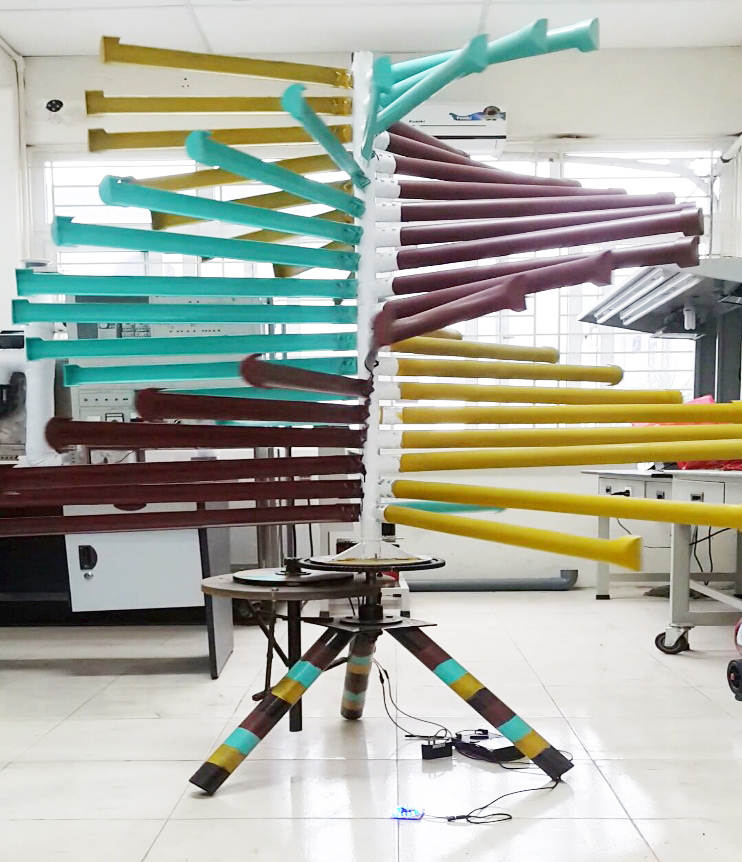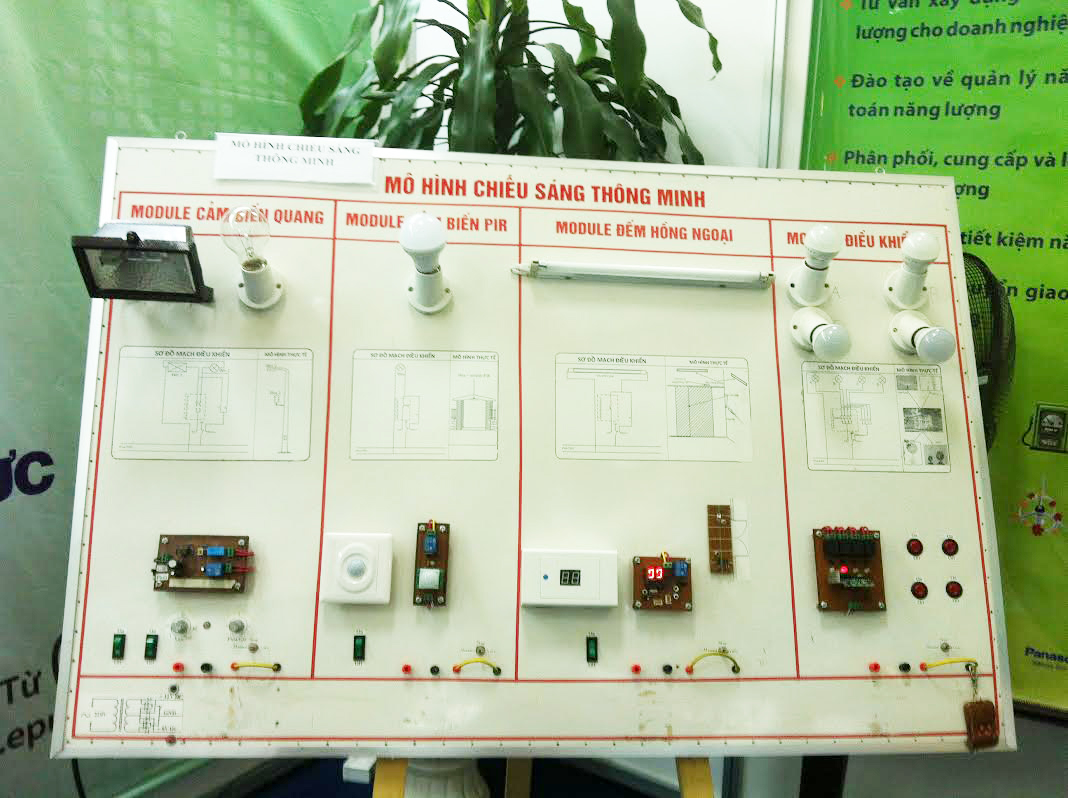Tuesday, 03/03/2026 | 20:51 GMT+7
Inspired by the DNA molecule model, Nguyen Thanh Tung, a student of Class D5 of Energy Management Faculty, Electric Power University has successfully manufactured his vertical axis wind turbine of small capacity.
The operation principle of this model is quite simple. The turbine rotor consists of a series of PVC propellers, mounted on a vertical spindle. This shaft is fixed to the driving gear connected to the rotating rotor.
In blowing wind, the rotor rotates round the coil (stator) causing the electromagnetic induction, thus the alternating current generated. This electric current is channeled through an adapter diodes to turn into direct current to charge the batteries.
Results from experimental run test show that in blowing wind speed of 4m/s, the turbine can generate a no-load voltage of 40V, a capacity of 100W - 200W. The generated power is sufficient for charging 12V batteries up to full capacity within 2 hours.

Model of vertical wind turbine to generate enough power for domestic use
As narrated by the inventor, the turbine can be easily installed on the house roof, fixed by the cabling system, lightning protection equipment and the electrical exciter, the voltage could reach 220 V, enabling sufficient electricity for 1 cooker, 1 electric fan and 1 bulb on windy days.
Sharing his ideas on the design of vertical wind turbine, Nguyen Thanh Tung says : "Vietnam is a country with great potential of wind energy. Making use of this energy source will reduce the use of fossil fuels. The model is particularly suitable for families in poverty-stricken remote areas and the outreach where grid line is not available".
In the mean time, the inventor will continue to improve wind turbine model with larger capacity, it can be combined with additional solar panels to achieve the highest energy efficiency.
As reported, two exhibitors in Trade Fair Entech Hanoi 2015 proposed to procure the idea of this wind turbine model for further research.
A Model for Smart Lighting
Smart lighting model is a scientific research subject of Ho Van Tien - a student of Class D4 - Energy Management Faculty, Electric Power University. The model consists of multiple systems, optical sensor control with timer, motion sensor system, infrared counter for room lighting control, and RF remote control.
Specifically, the optical sensor control allows the automatic on-off timer to function depending on the intensity of natural light. The lamp automatically turns on when it gets darker and turns off when day light is brighter. Besides, the user can set the timing switch, to turn on-off the lighting system for economical use of energy.
Meanwhile, the motion sensing device allows on-off lighting whenever there is a body movement in view. Thus, it avoids forgetting to turn off the light after use, that helps save power. The system can be applied to lighting at gate, stairs case, corridor, hallway and toilet area.

Smart lighting model with sensor and remote control
Speaking about the infrared counter for room lighting controls, the author said: "The system is highly applicable in the meeting room, the assembly hall which has only one entrance. The infrared circuitry is mounted on the door. When someone comes in, the system automatically turns on the lights and counts the number of entries. At the end of the meeting, the system counts the number of the people going out of the room and automatically turns off lights when the outbound number equalizes the inbound at zero".
For the RF control system, users can remotely turn on-off any device in the home, such as water pumps, lights, ceiling fans, wall fans, heater, just via a remote control handy pad.
"In addition to alternative LED bulbs, compact fluorescent light bulbs, I want to do research into more efficient energy solutions through rational lighting. Using sensors will make mart control be the trend of the future development. So, I hope to be able to apply what I have learned in practical applications"- the student inventor complemented.
Trong Tan







